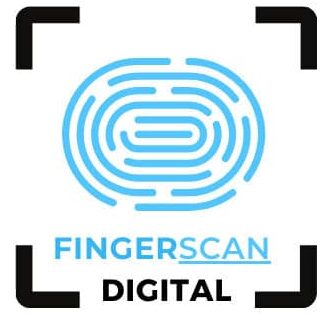Apostille Birth Certificates
In our ever-expanding global landscape, individuals find themselves crossing borders more frequently than ever before, whether for work, education, or personal pursuits. As the world becomes more interconnected, the need for authenticating legal documents for international use has become a crucial aspect of this global mobility. Among these documents, birth certificates hold a special significance, serving as a fundamental proof of identity. However, to use these certificates across borders, an additional layer of authentication is often required, and this is where the concept of apostille comes into play. In this comprehensive guide, we will unravel the essentials of apostille birth certificates, exploring their significance, the process involved, and the reasons behind the growing demand for this form of international recognition.
Understanding Apostille: A Primer
What is an apostille?
An apostille is a form of international certification that verifies the authenticity of a document for use in foreign countries. The term “apostille” itself comes from the French word meaning “certification.” This unique certification simplifies the process of legalizing documents for international use, condensing what could be a complex, multi-step procedure into a single certificate.
The Hague Convention of 1961
The apostille process is governed by the Hague Convention of 1961, an international treaty that established a simplified method of legalizing documents for international use among member countries. As of my last knowledge update in January 2022, over 120 countries are signatories to the Hague Convention, and they recognize apostilles issued by each other.
Why Apostille for Birth Certificates?
Globalization and Mobility
The 21st century is witnessing unprecedented levels of globalization and individual mobility. People move across borders for various reasons, and their birth certificates often need to be presented in foreign countries for purposes such as immigration, employment, marriage, or educational pursuits. An apostille streamlines this process, ensuring the birth certificate’s recognition in a member country without the need for extensive additional certifications.
Hague Convention Membership
Countries that are signatories to the Hague Convention recognize apostilles issued by other member countries. This mutual recognition simplifies the authentication process for individuals and organizations engaging in cross-border activities. It establishes a standardized method of document authentication that is universally accepted among member nations.
Streamlining the Legalization Process
Traditionally, the process of legalizing a document for international use involves multiple steps, including notarization, certification by a government authority, and possibly further legalization through embassies or consulates. Apostille condenses these steps into a single certificate, making the authentication process more straightforward and efficient.
The Process of Obtaining an Apostille for Birth Certificates
Step 1: Obtain a Certified Copy of the Birth Certificate
The journey toward obtaining an apostille for a birth certificate begins with securing a certified copy of the document. This typically involves contacting the relevant government agency responsible for vital records and requesting an official copy.
Step 2: Notarization
In many jurisdictions, the next step is to have the birth certificate notarized. A notary public, after verifying the authenticity of the document and confirming the identity of the person requesting the apostille, attaches their signature and seal.
Step 3: Verification by Competent Authority
Following notarization, the birth certificate is submitted to a competent authority. This is often a government office responsible for vital records or the secretary of state. The authority verifies the notary’s signature and confirms the authenticity of the document.
Step 4: Apostille Issuance
Once the document has been verified by the competent authority, an apostille is issued. This is a separate certificate attached to the birth certificate, confirming its authenticity and allowing it to be recognized in other member countries of the Hague Convention.
Step 5: Check for Additional Requirements
While the apostille process simplifies international document recognition, it’s essential to be aware of any additional requirements or specific regulations of the destination country. Some countries may have additional steps or requirements beyond the apostille for certain documents.
Common Challenges and Solutions
Challenge 1: Document Translation
In some cases, the destination country may require a translation of the birth certificate into its official language. Including a certified translation along with the apostille can address this requirement.
Challenge 2: Notarization Variations
Notary procedures can vary between countries, leading to potential challenges in obtaining a recognized notarization. Understanding the specific requirements of the destination country and working with experienced professionals can help navigate these variations.
Challenge 3: Timely Processing
The time it takes to obtain an apostille can vary depending on the jurisdiction and the efficiency of the relevant authorities. Planning and understanding the processing times can help avoid delays, especially for time-sensitive matters such as international job opportunities or academic pursuits.
Conclusion
As our world becomes more interconnected, the importance of standardized processes like apostille cannot be overstated. Apostille birth certificates play a pivotal role in facilitating international recognition, ensuring that individuals and organizations can navigate the complexities of document authentication with ease. Understanding the essentials of the apostille process for birth certificates is crucial for anyone involved in cross-border activities. As we move forward in this era of global mobility, the significance of these streamlined and universally recognized authentication methods will only continue to grow. Apostille is not just a certification; it’s a key that unlocks the doors to seamless international interactions. Read more blogs here





